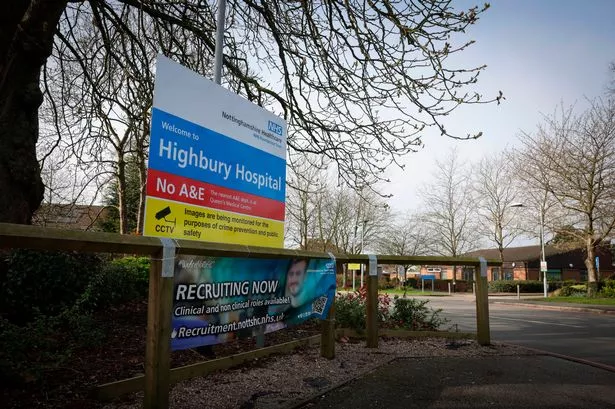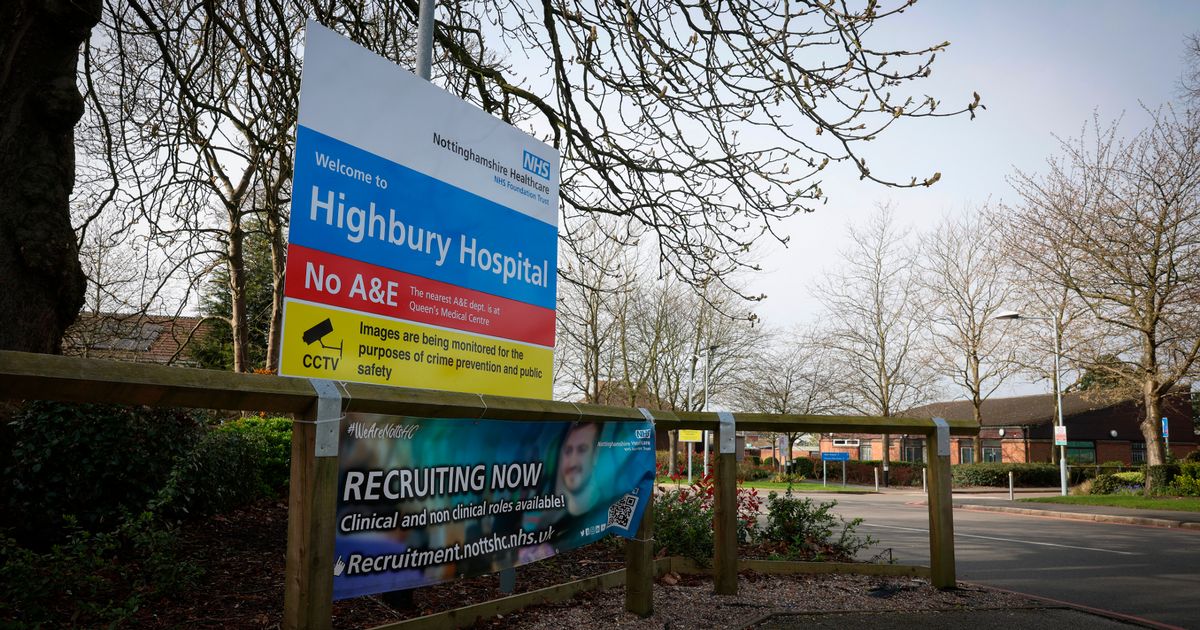The trust has already recruited 20 new staff to help demand Nottinghamshire Healthcare NHS Foundation Trust’s Highbury Hospital in Highbury Vale, Bulwell.(Image: Joseph Raynor/ Nottingham Post)
Nottinghamshire Healthcare NHS Foundation Trust’s Highbury Hospital in Highbury Vale, Bulwell.(Image: Joseph Raynor/ Nottingham Post)
A Nottinghamshire hospital trust responsible for mental health services has almost a third of its calls abandoned on its crisis line.
The figure was discussed in Nottinghamshire County Council ’s Health Scrutiny Committee meeting on Tuesday (September 23) when it was presented with an update report from Nottinghamshire Healthcare NHS Foundation Trust.
The trust, which is responsible for mental health services in Nottingham and Nottinghamshire, has been under scrutiny over the last couple of years.
It was the trust that provided support and care to diagnosed paranoid schizophrenic Valdo Calocane, who stabbed to death Barnaby Webber, Grace O’Malley-Kumar and Ian Coates in Nottingham in June 2023.
Following the Calocane case, the Care Quality Commission conducted a Section 48 review looking into Calocane’s care and also assessed wider issues in mental health care at Highbury Hospital and Rampton Hospital.
Recommendations were given following the review, with two specific to the trust’s crisis service. They included ensuring patients can access crisis services without delay and improving responsiveness in its four-hour and 24-hour targets for patients being seen by a professional if needed following a call.
The report discussed by the committee on Tuesday focused on improvements made in the trust’s crisis service and crisis access line.
As of September 2025 20 new staff have been recruited since June 2025 – recruitment is still ongoing for four additional staff members.
The new staff will help with the screening of calls into the crisis line to ensure patients calling in “get through to the right place”.
Councillor Janette Barlow (Con), asked members of the trust how “confident” they were about filling the four remaining posts by the end of ‘quarter four’ for the 2025/2026 year.
Jane O’Neill, clinical lead for Crisis Service at the trust, said she was “very confident”, but added: “Although the stepped approach wasn’t what we wanted, we’ve had to work to make sure we’ve got the right people in post. There is a lot of training involved as well, particularly around technology.”
Ms O’Neill told the committee there is currently around a 30 percent abandonment rate for calls into its crisis line, against a national target of two percent.
She said: “Our aim is to get that down to the national KPI which is two percent, so with the new recruitment we will hold ourselves to account to that.”
Cllr Helen Faccio (Lab) said: “Demand calls into the crisis access line have been high leading to an imbalance of capacity against demand – how much higher has the demand been unexpected and how has that impacted on service?”
Ms O’Neill responded that the demand is “about three times more” in terms of the available staff and the staff that the trust needs.
She said: “Notts Healthcare in terms of the calls that come into its crisis line is the busiest in the country.
“That’s not to say there’s more people in crisis in Nottinghamshire, actually it’s the way the system’s been set up so everything funnels through that one door.
“We’re going to make some changes and it’s particularly pleasing – seeing some correspondence with GP colleagues this week – we’re going to make some changes about how they access the service that would make it quicker which will mean they don’t have to go through screening.”
The committee was told that the extra staff will help enable to trust to offer an “all-age” service in its crisis line team for children and young people. Nottinghamshire young children still have crisis support available through CAMHS.
Cllr Roger Upton (Con) asked what the “reasonable” wait time was before calls are abandoned at the trust and queried the trust’s four hour and 24-hour target for patients trying to access the service.
The national target for crisis calls to be answered and screened is two minutes. The trust has a four-hour and a 24-hour target for patients who call in, are triaged and require assessment by a professional – the targets are based on perceived risk of a patient.
Ms O’Neill responded: “There is no national target for how many people we should see within four hours [or 24 hours]… we should see everybody that we rate within that. We monitor that on a weekly basis.
“We work to an 80 percent [target] for 24 hours, 90 percent [target] for four hours.
“Last week, it was a particularly good week, we hit 84 pe cent from our four-hour target. We have had weeks where we haven’t hit that depending on what comes through.”

